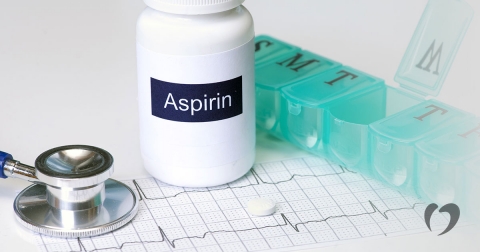Aspirin and Heart Health

Is aspirin really helping your heart?
Many people who want to reduce their risk of heart disease or stroke lean on over-the-counter aspirin to keep their heart in good working order. It’s an inexpensive medication, doesn’t require a prescription and you’ve heard it may help reduce your risk of heart attack.
But it’s not quite that simple, so don’t start taking low-dose aspirin without talking to your doctor first. Here’s what you really need to know about aspirin and heart disease.
Know the risks
Aspirin is sometimes prescribed to people who’ve already had a heart attack or stroke, as the blood thinning effect can lessen the chance of future heart attacks or strokes. That results in some people taking aspirin as a preventative measure even if they’ve never had a heart attack or stroke.
You shouldn’t start a daily aspirin regimen on your own, though. There are serious side effects that can occur, including internal bleeding if you’re not careful. In addition, if you start taking aspirin regularly, there’s some risk of actually triggering a cardiac event instead of preventing one if you stop taking it abruptly.
Talk to your doctor
Aspirin keeps blood from clotting as easily, which helps inhibit the kinds of clots that cause heart attack and stroke. But the body’s natural clotting ability is extremely important if you get cut. There’s some disagreement about the right course of action regarding aspirin for patients with no history of heart attack or stroke, but the FDA doesn’t recommend starting a course of aspirin treatment for such patients.
Newer studies indicate that the dangers of internal bleeding usually offset the benefits that aspirin can provide if you’ve never had an issue before. That’s a departure from previous guidelines, and one worth noting. Gastrointestinal bleeding is a danger if you’re taking a daily aspirin, as your blood won’t clot the same way, and sometimes that bleeding can be life-threatening.
If you’ve had issues with your heart before and your doctor has prescribed aspirin, that’s still fine. Continue to take it as recommended by your doctor. But just taking it as preventive medicine without talking to your doctor first can do more harm than good.
If you have questions about heart health and preventing heart disease, contact us today to schedule an appointment with an Oklahoma Heart Hospital physician.




